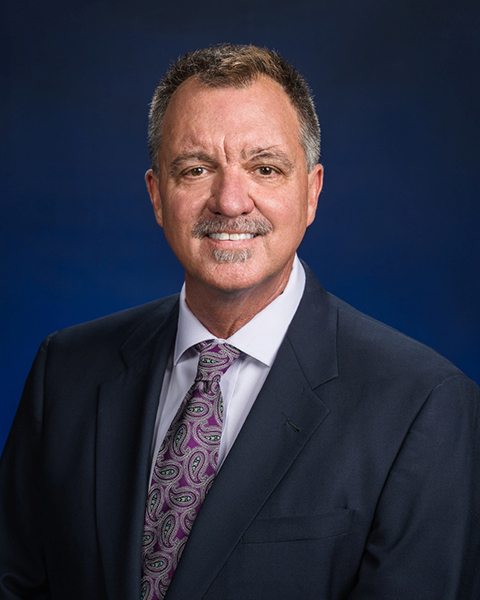Embry-Riddle Professor Named Co-Principal Investigator on NSF Cybersecurity Education Grant

An Embry-Riddle Aeronautical University professor will help community college and high-school students to learn about cybersecurity through a National Science Foundation (NSF) grant.

Dr. Philip Craiger, Department of Security Studies and International Affairs professor (Photo: Embry-Riddle/Daryl Labello)
Dr. J. Philip Craiger, a professor in the Department of Security Studies and International Affairs, was made a co-principal investigator on the NSF grant to create cybersecurity-related videos for community college and high-school students in cybersecurity or information technology programs."
The videos will be housed on NCyTE’s YouTube channel.
The grant is part of a bigger award that establishes the National Cybersecurity Training and Education Center (NCyTE) at Whatcom Community College, in Bellingham, Washington. The award comes out of NSF’s Directorate of Undergraduate Education Advanced Technological Education program, which funds programs to assist mostly community colleges, but also high school programs, to promote technological education.
Craiger will serve as a co-principal investigator (co-PI) on the new grant. Previously, he served as a co-PI on an NSF award for a regional resource center for NCyTE, where his primary responsibility included creating videos on cybersecurity in the domains of aviation, maritime transportation, small unmanned aircraft systems, cyber supply chain risk management and artificial intelligence. He has also produced a playlist targeting students’ use of their own digital devices and the importance of cybersecurity, videos that assume little or no technical knowledge.
When the current award begins on Oct. 1, Craiger plans to cover cybersecurity in the domains of healthcare, elections and any of the domains included in the Department of Homeland Security’s 17 critical infrastructure sectors, such as energy, manufacturing, food and agriculture and dams.
For each of the videos, Craiger says he first needs to immerse himself in the specific domain being presented. “The videos are time intensive, as I do a lot of research prior to making them," he said. "It would be impossible to be an expert in every one of the critical infrastructure sector domains."

 Michaela Jarvis
Michaela Jarvis